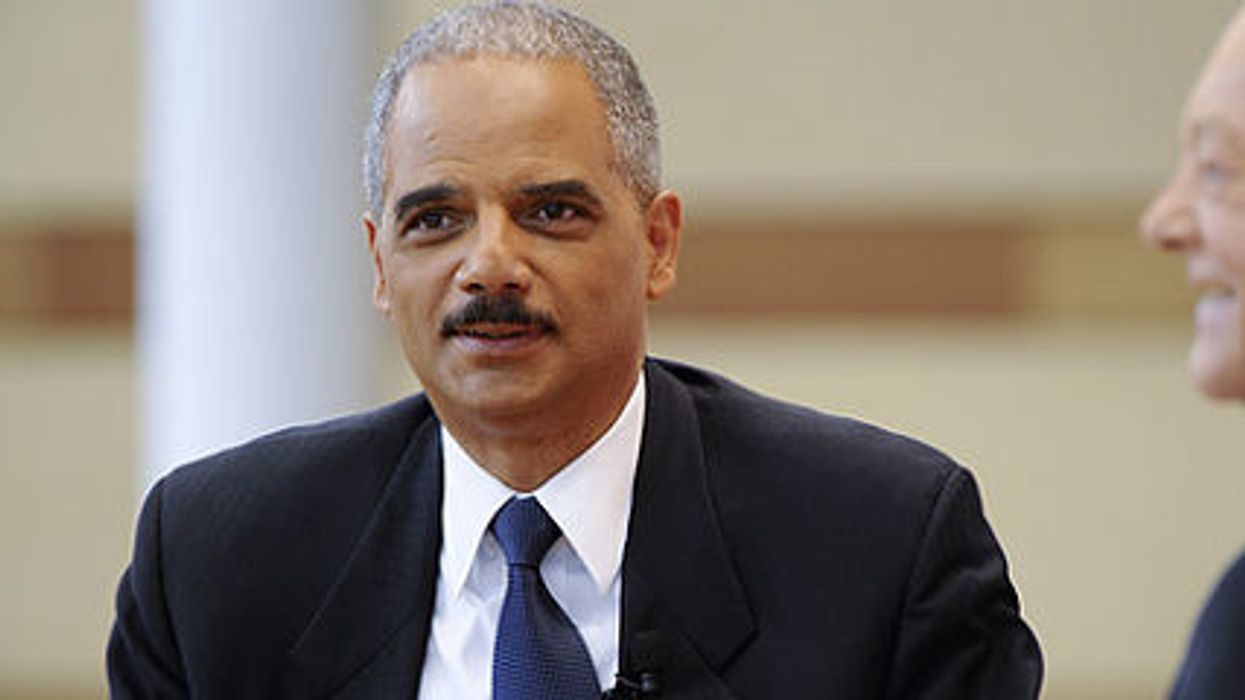A Powerful Democratic Ally Steps Up To Fight Trump's Gerrymandering
Former Attorney General Eric Holder, who leads the National Democratic Redistricting Committee, will join a call with House Democrats on Wednesday as the party plans a strategy to counter a wave of Republican-led redistricting efforts during mid-decade—an open attempt to secure the GOP’s narrow House majority before the 2026 midterms.
The Democratic Congressional Campaign Committee is organizing the powwow, according to Punchbowl News.
Holder’s involvement is notable—it not only highlights how redistricting battles have dominated this summer’s political agenda but also suggests that Democrats are finally shifting to an offensive to push back against President Donald Trump’s efforts to draw rigged congressional maps in certain red states.
For years, Holder has supported nonpartisan reform, advocating for the establishment of independent commissions to take redistricting authority away from politicians. Now, however, with Republicans openly working to redraw congressional maps for maximum advantage, he and other Democrats are shelving reform talks and preparing for a fierce fight.
Thanks to Trump, GOP-controlled states are acting swiftly. Republicans are ready to push through new maps in Texas, Missouri, Ohio, and possibly Florida, with the Trump administration also urging Indiana to join in. Not every state with redistricting authority is willing, but pressure from Trump’s camp is evident.
Texas is the focal point. Statehouse Democrats are in their second week of hiding out across state lines to deny Republicans the quorum needed to pass their gerrymandered map. Trump has claimed he’s “entitled” to five more Texas seats, while Gov. Greg Abbott has suggested carving out as many as eight if Democrats continue to break quorum. As of Monday, the Texas House still lacked a quorum, with enough Democrats out of state to block Republicans from passing their gerrymandered congressional map.
Texas GOP Sen. John Cornyn, on Thursday, claimed state law enforcement is working with federal agents to locate the absent lawmakers. Abbott also threatened to keep calling special sessions until Republicans get their gerrymandered map—or something close. The reality is Abbott might lack the legal tools to force Democrats back to Austin, but the standoff has become a political rallying point for both sides.
Democrats, who have traditionally pushed for redistricting reform rather than partisan retaliation, argue that the Texas case is different.
“Authoritarian moves are being made ... and there has to be a response to that,” Holder warned on Sunday’s Meet the Press.
Maryland Rep. Jamie Raskin, the lead Democrat on the House Judiciary Committee, was more direct.
“I honestly don’t see any debate in the party over this,” he told Axios. “If [Republicans] are going to continue with the Texas chainsaw gerrymander, we have no choice but to fight fire with fire and use whatever legislative resources we have ... to fight back.”
He added, “Ultimately, we will fight fire with water. But nobody is on the side of unilateral disarmament ... we are not going to allow them to gerrymander us into oblivion.”
One of the Democrats’ strongest counterattacks could come from California, where they’d likely gain the most new seats. But doing so would require sidelining or eliminating the state’s independent redistricting commission—something party leaders have long resisted.
Holder’s background gives significance to the moment. As attorney general under President Obama from 2009 to 2015, he saw Republicans sweep state legislatures and leverage that power to redraw House districts in their favor. In 2017, he created the National Democratic Redistricting Committee, aiming to end partisan gerrymandering altogether. Now, with the stakes in 2026 clearer, Holder is signaling he’s willing to play by the rules Republicans have established—at least temporarily.
Reprinted with permission from Daily Kos.












